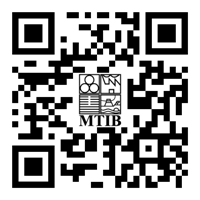Malaysia - Australia Free Trade Agreement (MAFTA)
Background
Malaysia and Australia concluded negotiations on the Malaysia-Australia Free Trade Agreement (MAFTA) on 30 March 2012. MAFTA entered into force on 1 January 2013.
MAFTA is a comprehensive agreement comprising 21 chapters encompassing trade in goods, services and investment as well as economic cooperation. It also covers intellectual property rights, e-commerce and competition policy. MAFTA marks another important milestone in Malaysia - Australia economic relations, complementing the already established ASEAN-Australia-New Zealand FTA (AANZFTA).
Malaysia is one of Australia's closest regional partners and one of South East Asia's fastest-growing economies. Two-way goods and services trade between our two countries was $17.2 billion in 2011-12 (the year MAFTA was signed). MAFTA will further strengthen and expand Australia's economic relationship with Malaysia, creating export and investment opportunities for Australian businesses.
Trade in Goods
The Agreement Outlines Commitments Of Both Countries On Liberalisation Of Trade In Goods. Australia Will Eliminate 100% Of Its Import Tariffs Upon Entry-Into-Force On 1 January 2013 While Malaysia Will Progressively Reduce Or Eliminate Import Tariffs On 99% Of Its Tariff Lines By 2020
Declaration of Origin
The DOO Can Take The Form Of A Declaration On The Invoice Or Company Letterhead (OCP Rule 1).
The MAFTA Does Not Require A Specific Format To Be Used For The DOO On The Invoice Or Company Letterhead; Provided That The Data Requirements Are Contained In The Document.
The DOO Or COO Must Contain Data Requirements As Listed In The Appendix On Data Requirements, As Follows:
- Name And Details Of The Exporter/Producer;
- Declaration By The Exporter/Producer Or Their Authorised Representative That The Goods Are Originating;
- Description Of The Goods;
- HS Code (6 Digits); And
- Origin Conferring Criteria.
- Documentation Is Valid For One Year After The Date On Which The DOO Was Signed Or The COO Was Issued (Article 3.15 Of The Agreement).
- Services
- Market Access;
- Movement Of Natural Persons;
- Mutual Recognition Arrangement;
- Telecommunication; And
- Financial Services.
In Order To Benefit From The Preferential Tariff Rates Under MAFTA, Exporters Need To Fulfil The Requirements Under Rules Of Origin (ROO) Which Are Based On The Product Specific Rules (PSR) As Stipulated Under Appendix B Of The Agreement. You Can View The PSR Via This Link (Refer To Page 32): Product Specific Rules (PSR);
Under Annex On Operational Certification Procedures (OCP) To Chapter 3 Of The Agreement, The ROO Requires That:
- Exports From Australia Are Supported By A Declaration Of Origin (DOO); And
- Exports From Malaysia Are Supported By A Certificate Of Origin (COO) Issued By The Issuing Authority (MITI).
Economic Cooperation
Under MAFTA, Both Countries Have Also Agreed On A Number Of Areas Of Cooperation:
- Clean Coal Technology
Assist Malaysia In Developing Carbon Capture And Storage Technology Project For The Purpose Of Reducing Carbon Dioxide Emissions From Thermal Power Plants. - E-Commerce
Assist Malaysia In The Development Of Its New Office Of The Commissioner For Personal Data Protection And In The Initial Stage Of The Implementation Of Its Personal Data Protection Act. - Agriculture
Assist Malaysia In The Development Of Phytosanitary E-Certification. - Tourism
Assist Malaysia In The Development/Implementation Of A Tourism Industry Accreditation Scheme To Improve Quality Of Malaysia's Tourism Products With A Specific Focus On Ecotourism. - Automotive
Creating Opportunities For Malaysian And Australian Component Suppliers To Participate In Commercial Exploitations Of R&D; And Assist The Malaysian Automotive Industry To Develop Capacity Of Trainers To Deliver High Quality, Best Practice Training To Individual Workers Within The Sector Including 3R (Recycling, Reduce And Reuse) Initiatives.
 English
English 

 Bahasa Melayu
Bahasa Melayu